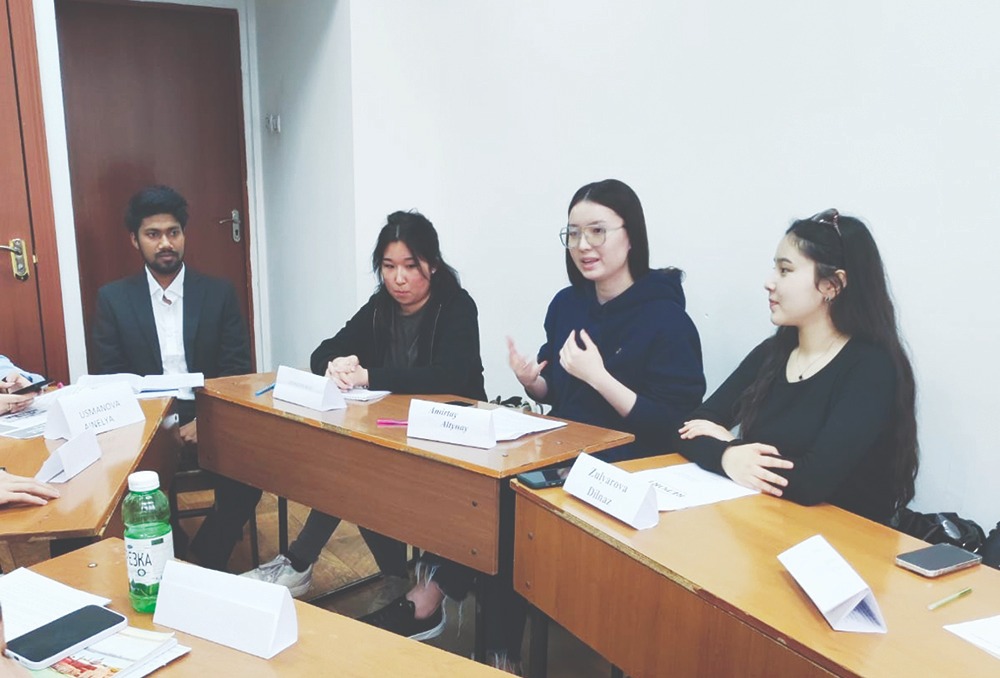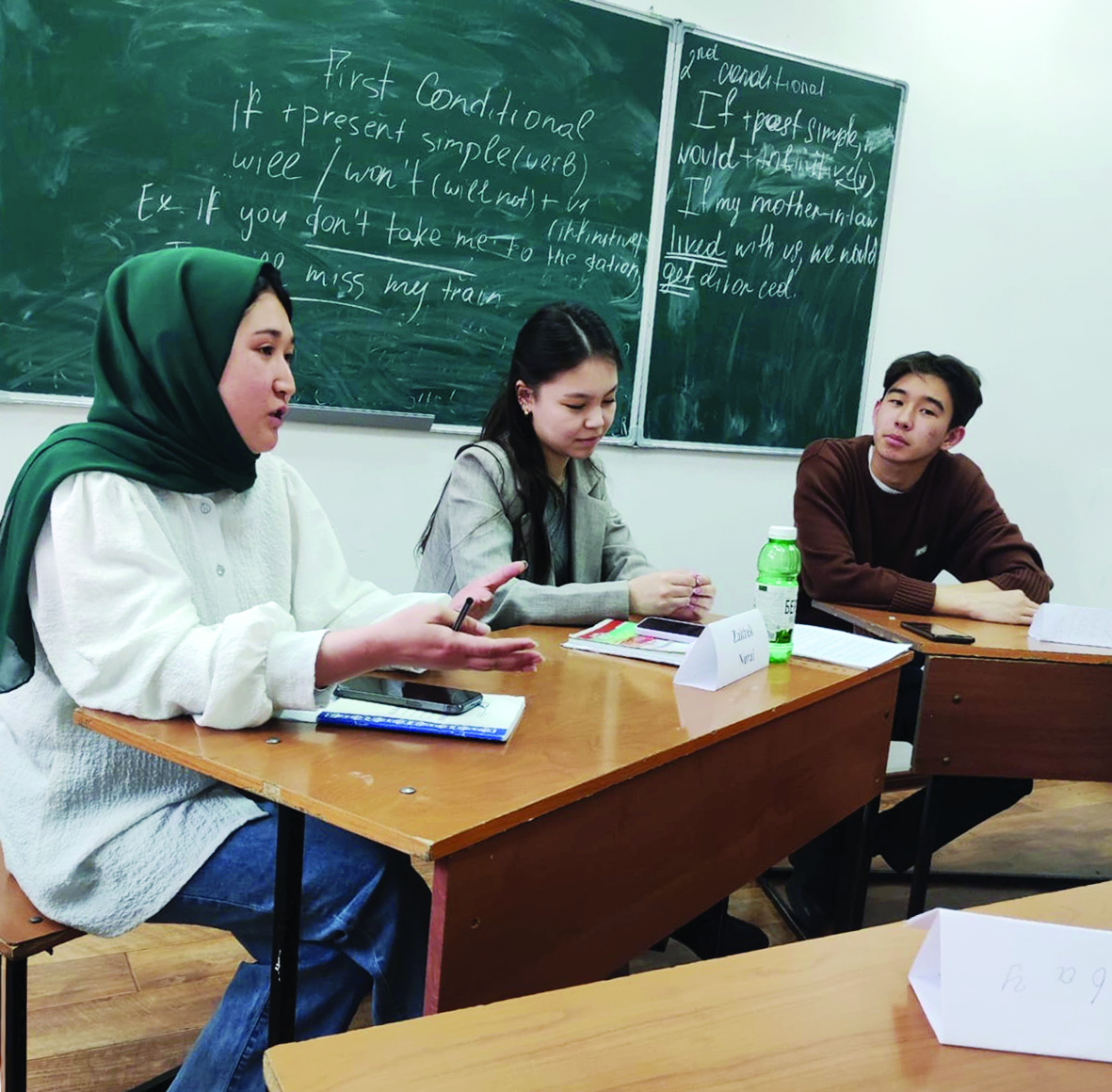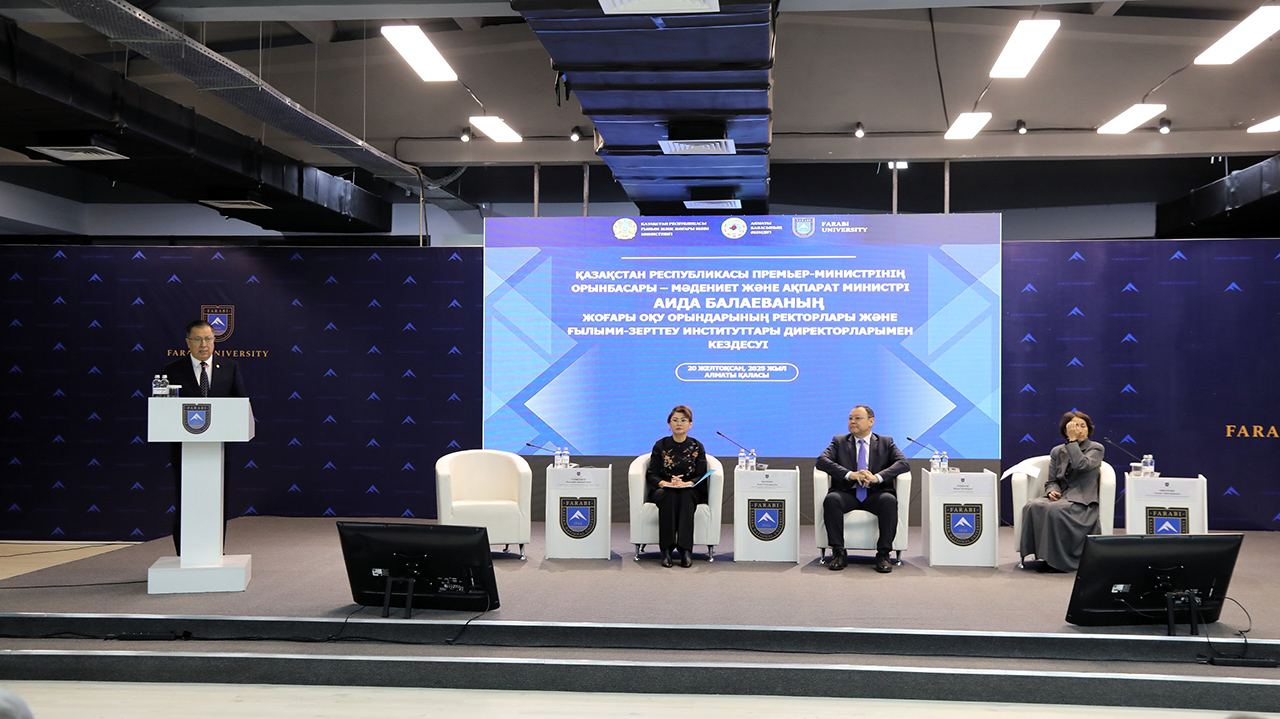
My teaching motto is: English is not a science, it is a skill. And all my lessons are aimed to navigate mostly speaking skills. This academic year I was lucky to have political science students. They are highly motivated, active and passionate about learning English students. One of my favorite techniques is holding round table discussions in class and the students were also agreeable to participate in it. In this article I am going to give an account of a round table discussion on the topic “The Sustainable Development Goals (SDGs)”.
A moderator of the round table discussion was Ainelya Usmanova and she was the 1st speaker: In 2015, all the countries in the United Nations adopted the 2030 Agenda for Sustainable Development. It sets out 17 Goals that are call to action to end poverty and inequality, protect the planet, and ensure that all people enjoy health, justice and prosperity. All the goals are interconnected and they recognize that ending poverty must go hand-in-hand with strategies that build economic growth and address a range of social needs including education, health, equality and job opportunities while tackling climate change and working to preserve our ocean and forests.
Dilnaz Zulyarova: I would like to dwell on the 13th goal: Climate action. I want to remind you all the recent flood events in Kazakhstan. Thousands of people left their homes and property to escape from severe climatic disaster. Now the essential goal of humanity should be combatting climate change.
Nurai Zaitbek: I think goal is about promoting peaceful and inclusive societies, providing access to justice for all and building effective, accountable and inclusive institutions at all levels. Everyone on Earth should be free of fear from all forms of violence and feel safe as they go about their lives whatever their ethnicity, faith or sexual orientation.
Aruzhan Aikimbekova: Poverty remains as one of the most serious challenges of our time. To end poverty, we must adopt a comprehensive approach that addresses its interconnected causes. Quality education is one of the most useful tools in the fight against poverty. Access to healthcare is another fundamental right that cannot be ignored. Ending poverty is not only a moral necessity, but also a strategic investment in a more peaceful, prosperous and sustainable future.
Md. Farhad Hossain Sahib: The 4th Sustainable goal is “Quality Education”. Education is the backbone of a nation. Education is indispensable for a nation to achieve the highest level of development and harmony. Unfortunately, many countries around the world still struggle in darkness due to inadequate access to quality education. 59 million children of primary school age are being denied an education and almost 65 million adolescents are without access to secondary school for many different reason. They might not have the means to pay for their education or there is no school in their neighborhood, they have to take part in vocational or labor activities to bring income into the family. Today's children are tomorrow's future, quality education must be a priority.

Fawzia : Zero Hunger is the second highlighted goal. It is about creating a world free of hunger by 2030. What can we do to help? Everyone can make changes in his/her own life—at home, at work and in the community—by supporting local farmers or markets and making sustainable food choices, supporting good nutrition for all, and fighting food waste. We all want our families to have enough food to eat what is safe and nutritious. A world with zero hunger can positively impact our economies, health, education, equality and social development. It’s a key piece of building a better future for everyone. Additionally, with hunger limiting human development, we will not be able to achieve the other sustainable development goals such as education, health and gender equality.
Amirtay Altynay: The third goal focuses on good health and well-being. This goal addresses all major health priorities: reproductive, maternal, newborn, child and adolescent health; communicable and non-communicable diseases; universal health coverage; and access for all to safe, effective, quality and affordable medicines and vaccines. To ensure healthy lives and promote the well-being of all children, UNICEF has four key asks that encourage all governments to: 1. Strengthen primary healthcare systems to reach every child.2. Focus on maternal, newborn and child survival, 3. Prioritize child and adolescent health and well-being, including mental health, 4. Support responses to reduce the impact on children and families of natural disasters, complex emergencies and demographic shifts.
Alsu Azirbekova: The 12th goal which called "Responsible consumption and production" is aimed at ensuring sustainable consumer and production practices. It calls for reducing waste and emissions, improving resource efficiency and reducing pollution. People need to recycle, reuse, reduce, repeat, reproduce and everything that starts with RE. Due to the fact that it is very important to think about other people's consumption which aimed at improving the quality of life of people, reducing the negative impact on the environment and sustainable economic development is specifically significant.
Such discussions instill in students’ minds the idea that they should take an active civic position in their lives. In conclusion I would like to emphasize that throughout the whole term my students were active and demonstrated their desire to improve their spoken english skills. I wish them to be successful in all their endeavors.
S. MULDAGALIYEVA,
Foreign languages
department teacher
